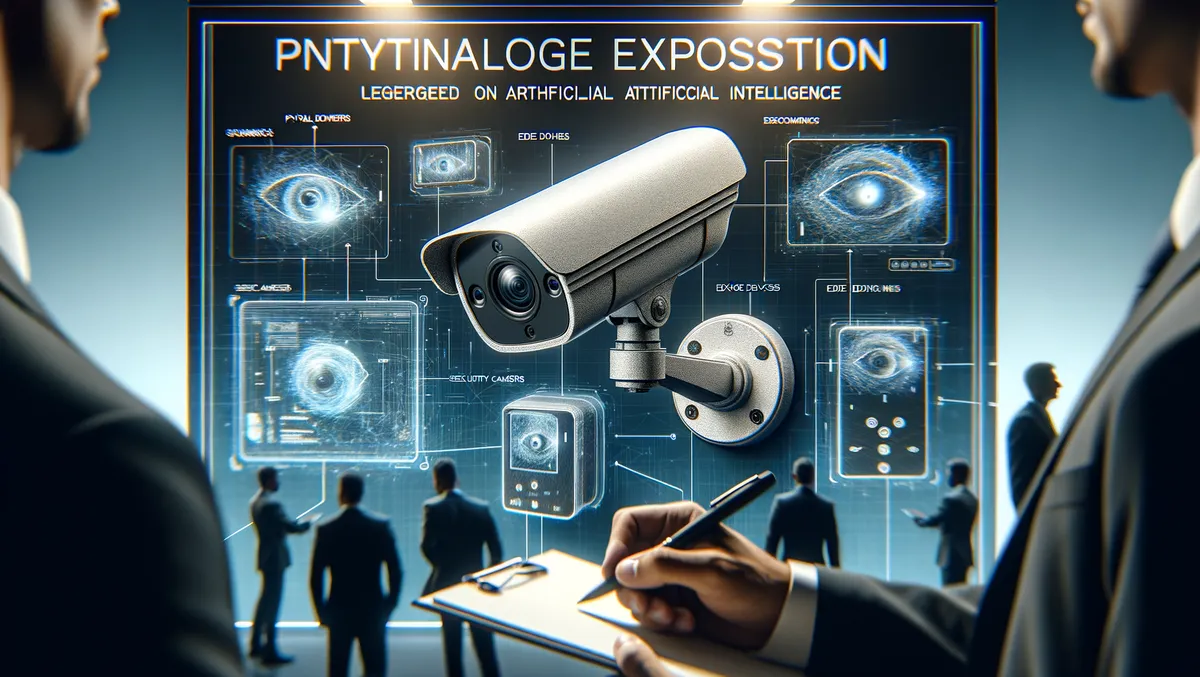
i-PRO predicts top trends in physical security for 2024
Leading professional security solutions provider, i-PRO Co., Ltd. (formerly known as Panasonic Security), has revealed its top four predictions for trends in the physical security industry in 2024. These forecasts focus on advancements in artificial intelligence (AI), privacy and cybersecurity protections, and a rising emphasis on open platforms.
i-PRO foresees a considerable acceleration in AI adoption in the physical security market. AI-based security cameras have cultivated a significant impact by decreasing errors in detecting humans and vehicles. In 2024, AI technology will enter the next stage, with businesses harnessing on-site edge device learning to identify specific objects important to their operation. "On-site AI training of edge devices can enhance accuracy by recognising logos on vehicles or uniforms, counting planes, forklifts and baby strollers, among other things," explained Hiroshi (Huey) Sekiguchi, CMO at i-PRO Co., Ltd.
AI-based systems will soon detect when individuals require assistance or send notifications about a wet floor, for example, to avoid accidents. They will harvest a new stream of business intelligence data using edge processing within security cameras. This will enable more automated workflows, increase operational efficiency and improve service quality.
In 2024, scalability, flexibility and the futureproofing of technology investments will also play a central role. i-PRO urges organisations to engage with vendors and manufacturers with open platforms. They should also design their equipment to adapt to AI and analytics advancements without major upgrades. In executing a phased approach of retrofitting, upgrading, and integrating existing ongoing equipment with new technology, businesses can extend the lifespan of their current devices while also adding new features. This includes bringing AI to non-AI devices.
Moreover, the upcoming year will see an increase in edge power. Cameras equipped with robust processors will achieve further edge processing of video data. Edge devices will collaborate and consolidate their computational resources in a similar way to cloud racks of servers today. This enhanced edge processing will cause backend server expenditure to remain relatively low, as additional AI-based analytics processing happens within edge devices, like cameras. This means less video gets sent back to servers for analysis, making cloud systems more efficient and less expensive.
Lastly, privacy and cybersecurity will face further examination. As AI and its subsets attract increased scrutiny due to the implementation of executive orders and laws worldwide aiming to reduce infringements to privacy and ownership of personal data. "Organisations will need transparency and compliance in the face of legislative changes and best practices that could change quickly," warned Sekiguchi.
In 2024, with a wealth of data being collected using AI, the industry will need robust cybersecurity practices to ensure the privacy of this information. This includes supporting evolving standards like NIST's FIPS 140-3 standard and global zero trust practices. The US federal mandate for compliance with zero trust architecture and design by 2024 will impact any organisation doing business in the country. Additionally, i-PRO anticipates the U.S. will pass the American Data Privacy and Protection Act, offering GDPR-like protections to US citizens.
Commenting on the anticipations for 2024, Sekiguchi said, "With technology changing so quickly, it's more important than ever to educate the industry about how these exciting technologies can be used to protect assets and generate revenue, all while complying with privacy regulations and cybersecurity best practices."


